Terrell Russell, Ph.D
Executive Director, iRODS Consortium
Director of Data Management, RENCI
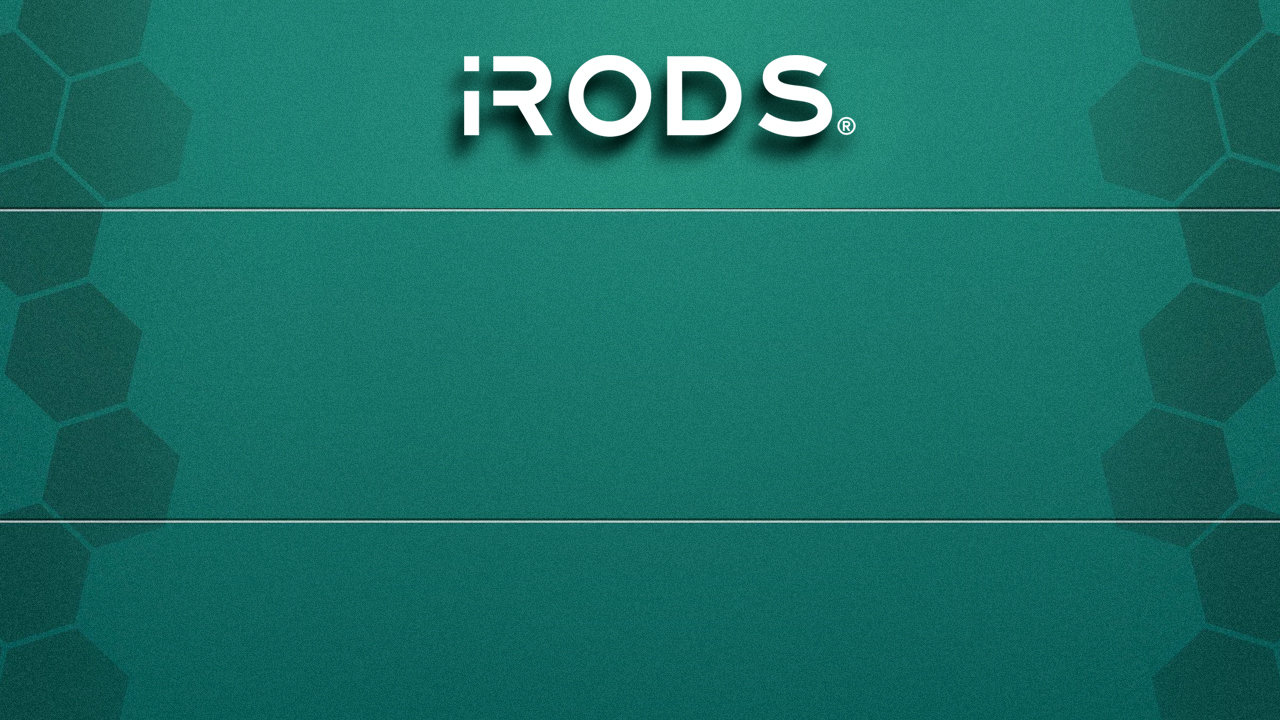
November 17-22, 2024
Supercomputing 2024
Atlanta, GA
Building an
Approachable Cost-Effective Data Management Platform



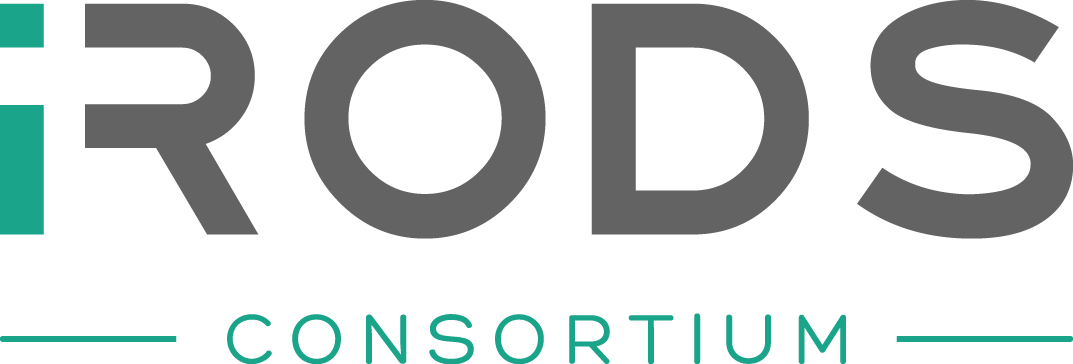
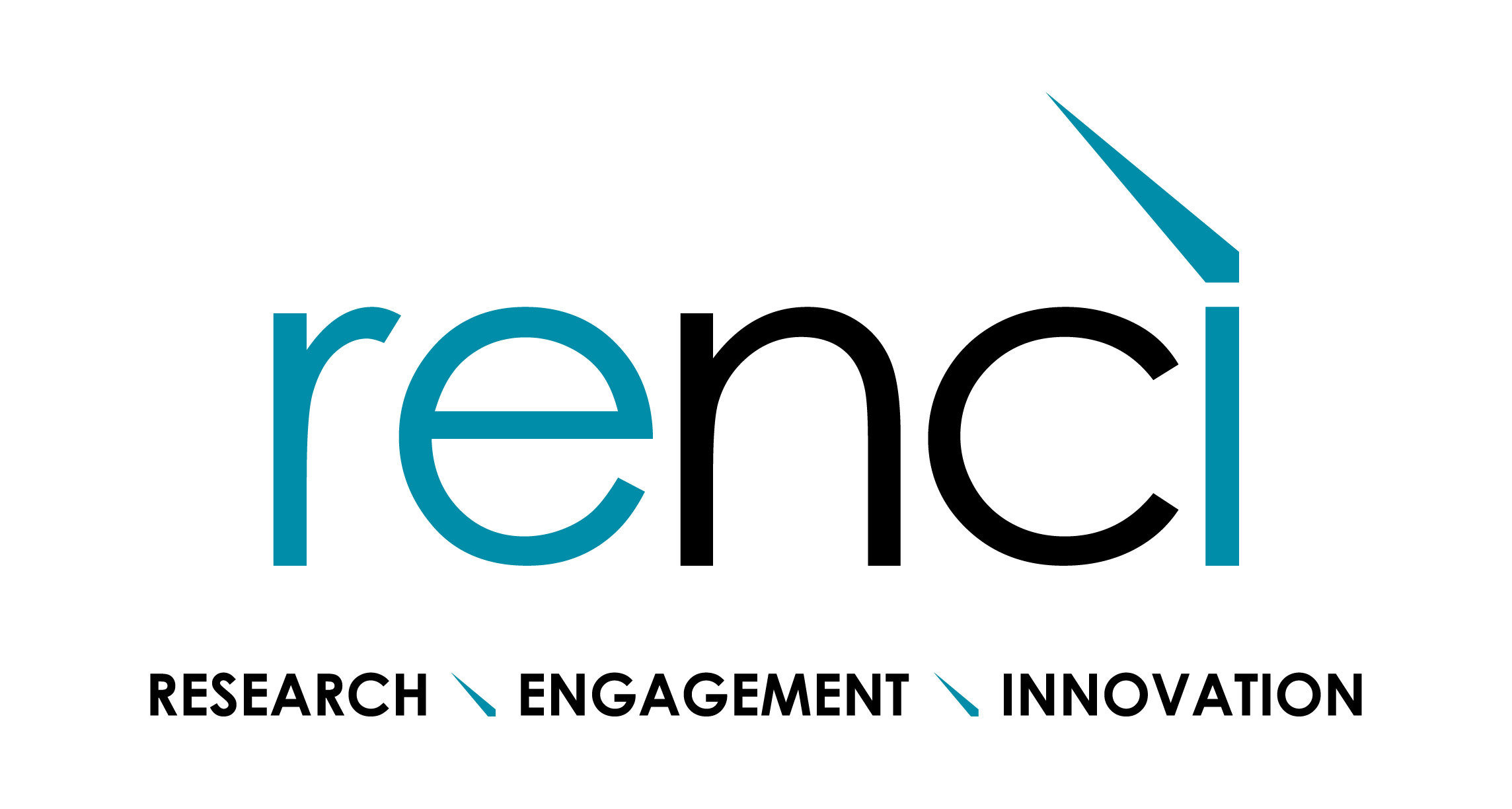


Our Membership

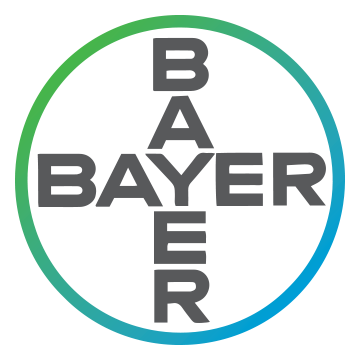
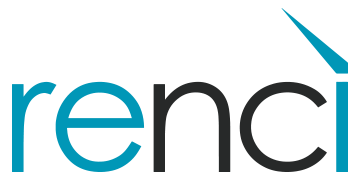

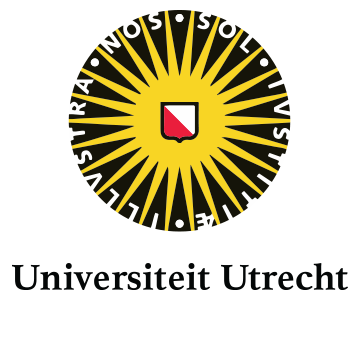






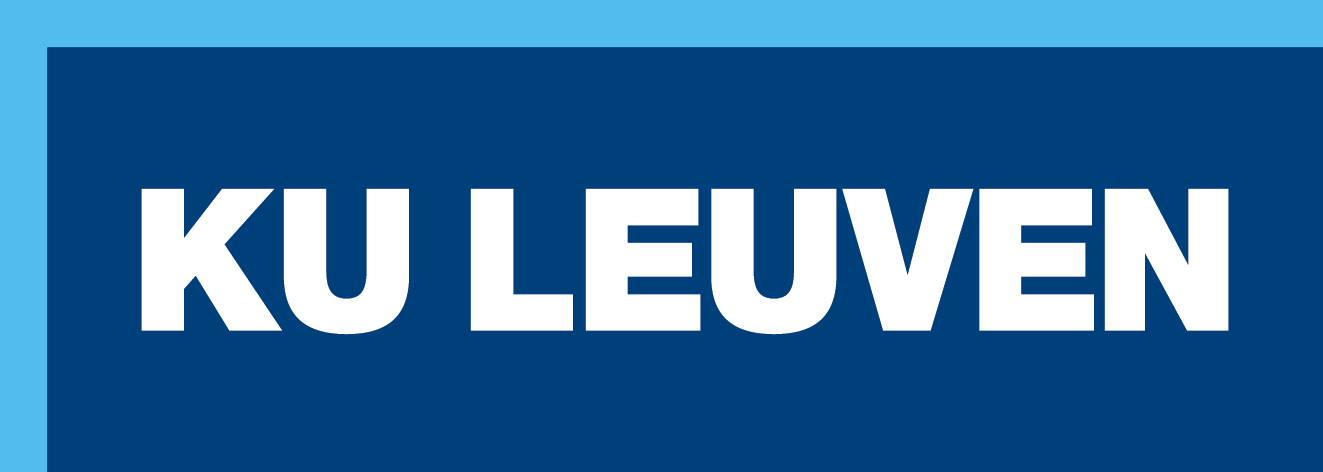




Consortium
Member
Consortium
Member
Consortium
Member






Mission

Long-term data management is best executed when policies are clear and infrastructure is abstracted and swappable.
iRODS has a desire to be normal and boring for the administrator and approachable and powerful for the user.
This talk will cover recent advances and interfaces which allow companies to sustain FAIR data practices, enforce consistency and reproducibility, and realize cost-savings through open source software.
Partners and Users: Past and Present

- Supercomputing Centers
- Physics
- Library / Archives
- Genomics
- Bio / Pharmaceutical
- Hydrology / Weather
- Medical
- Manufacturing
- Shipping / Logistics
- Automotive
Working with DDN on the AI Stack



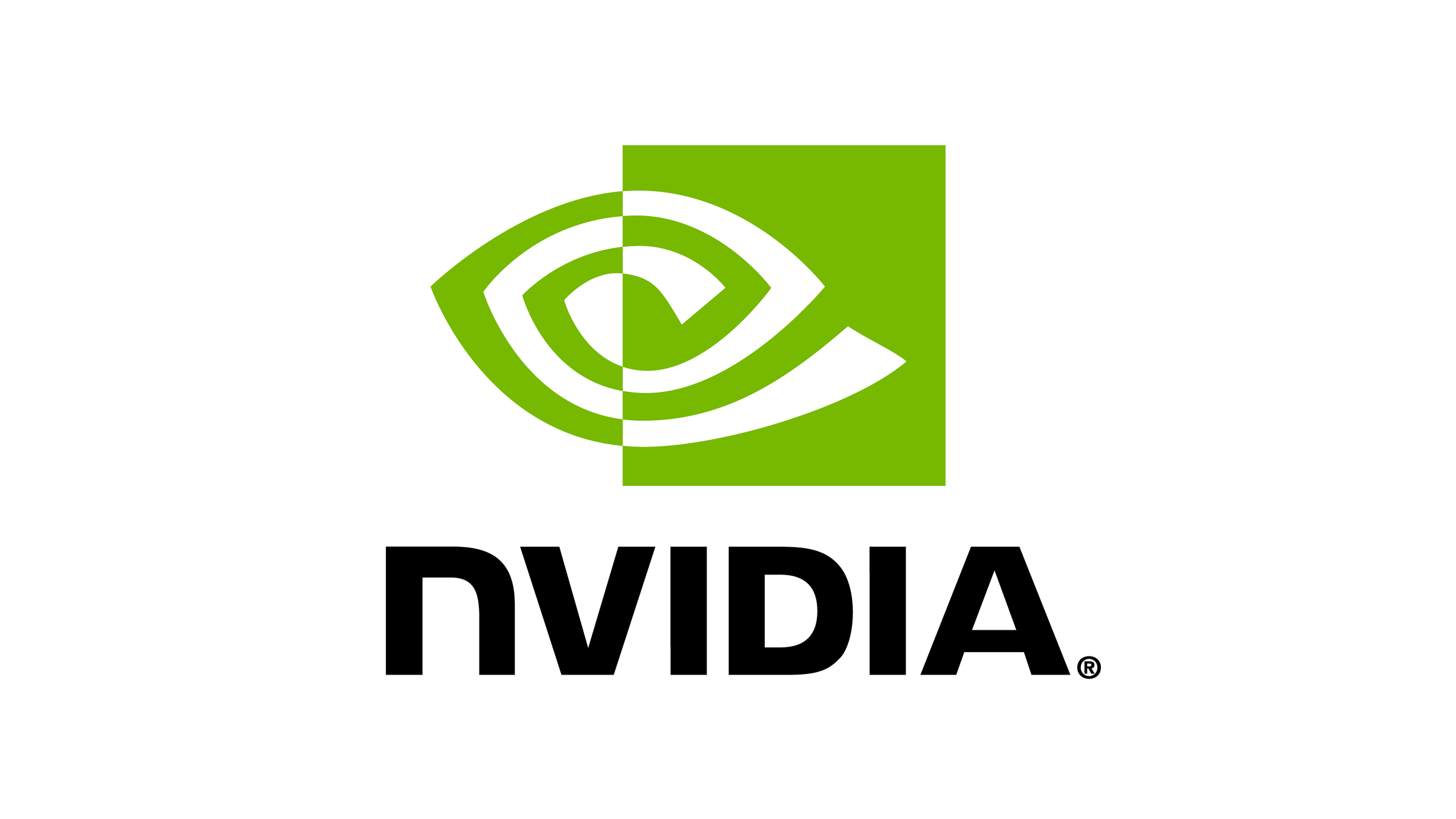
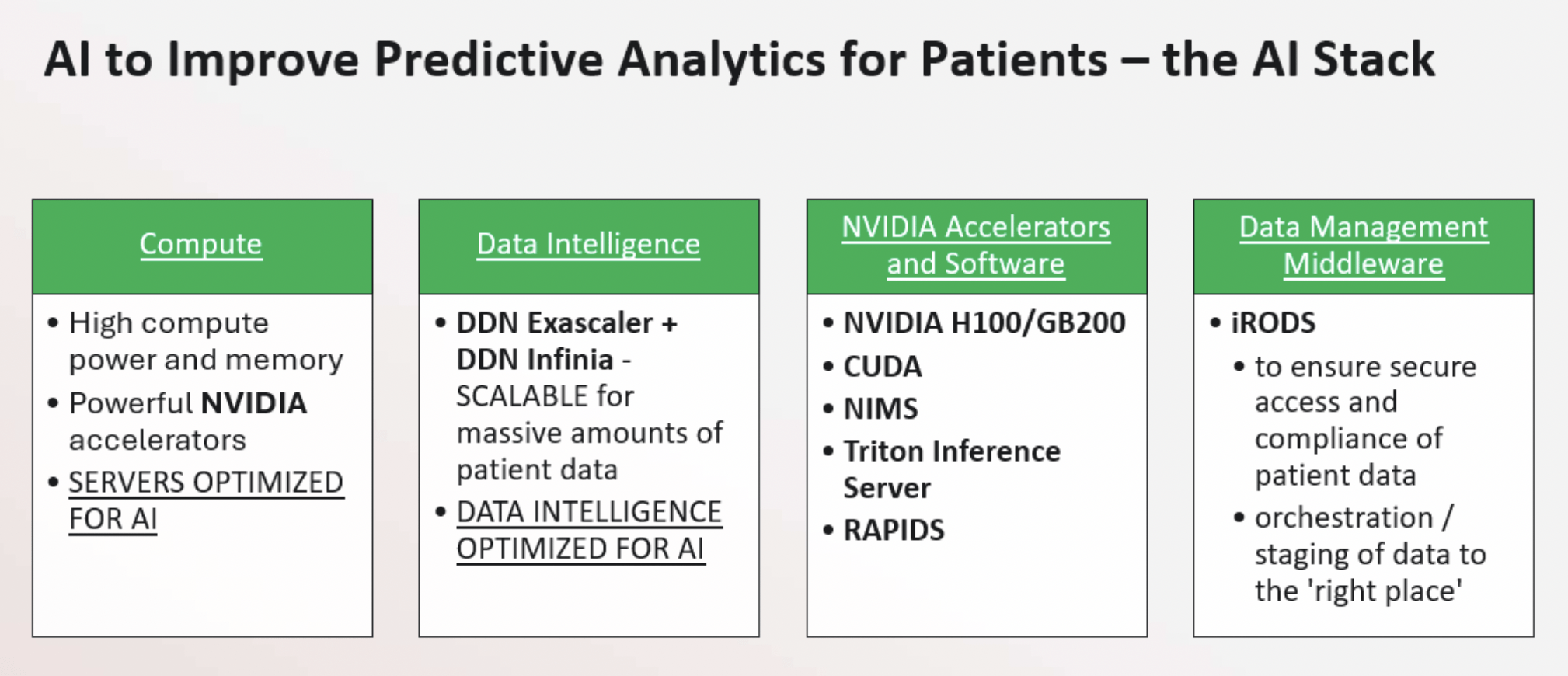
What is iRODS
Open Source
- C++ client-server architecture
- iRODS Protocol and RPC API
- BSD-3 Licensed
Distributed
- Runs on a laptop, a cluster, on premises or geographically distributed
Data Centric & Metadata Driven
- Insulate both your users and your data from your infrastructure over time

iRODS as the Integration Layer
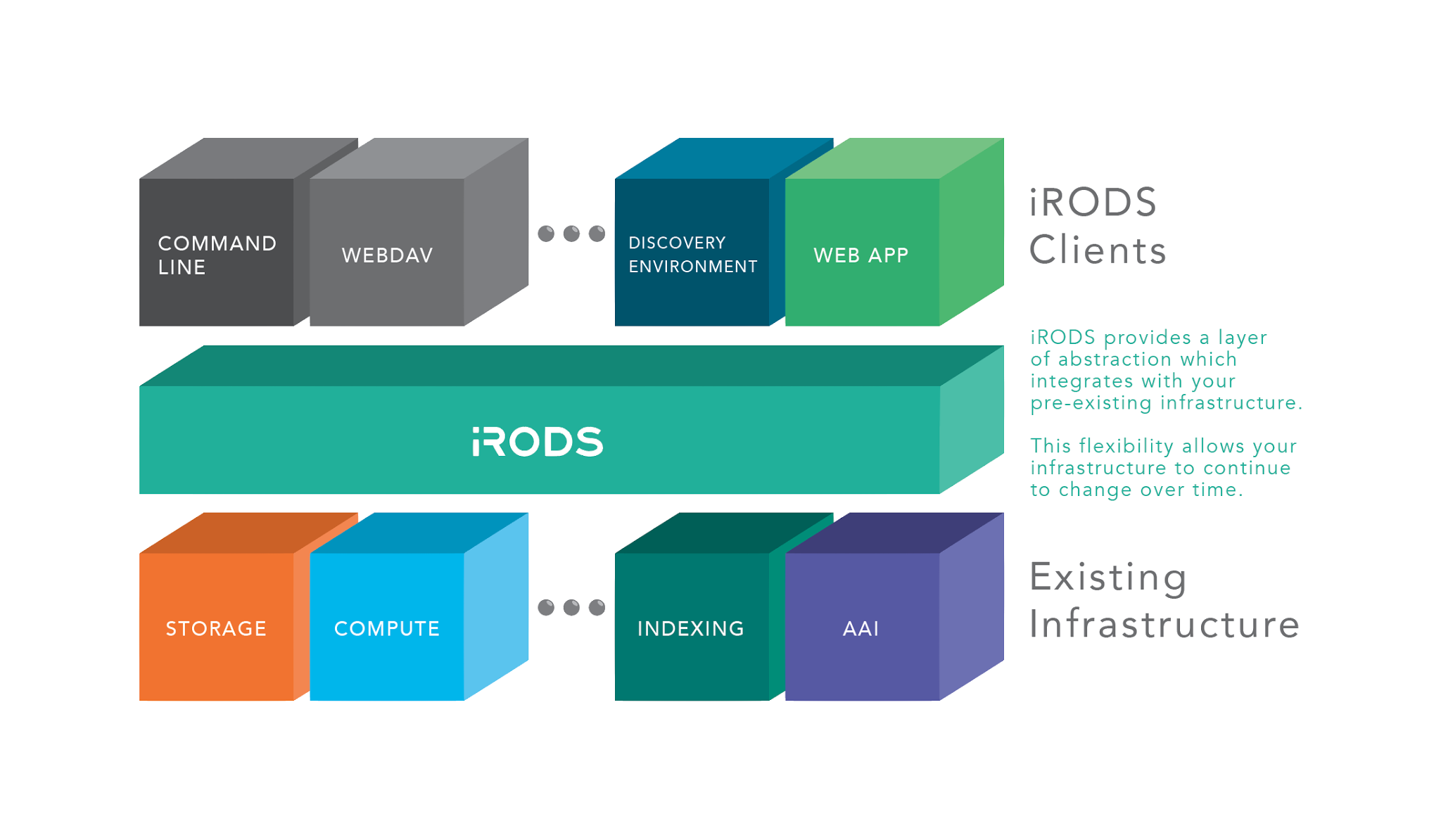

Why use iRODS?

People need a solution for:
- Managing large amounts of data across various storage technologies
- Controlling access to data
- Searching their data quickly and efficiently
- Automation
The larger the organization, the more they need software like iRODS.
Ingest to Institutional Repository
As data matures and reaches a broader community, data management policy must also evolve to meet these additional requirements.
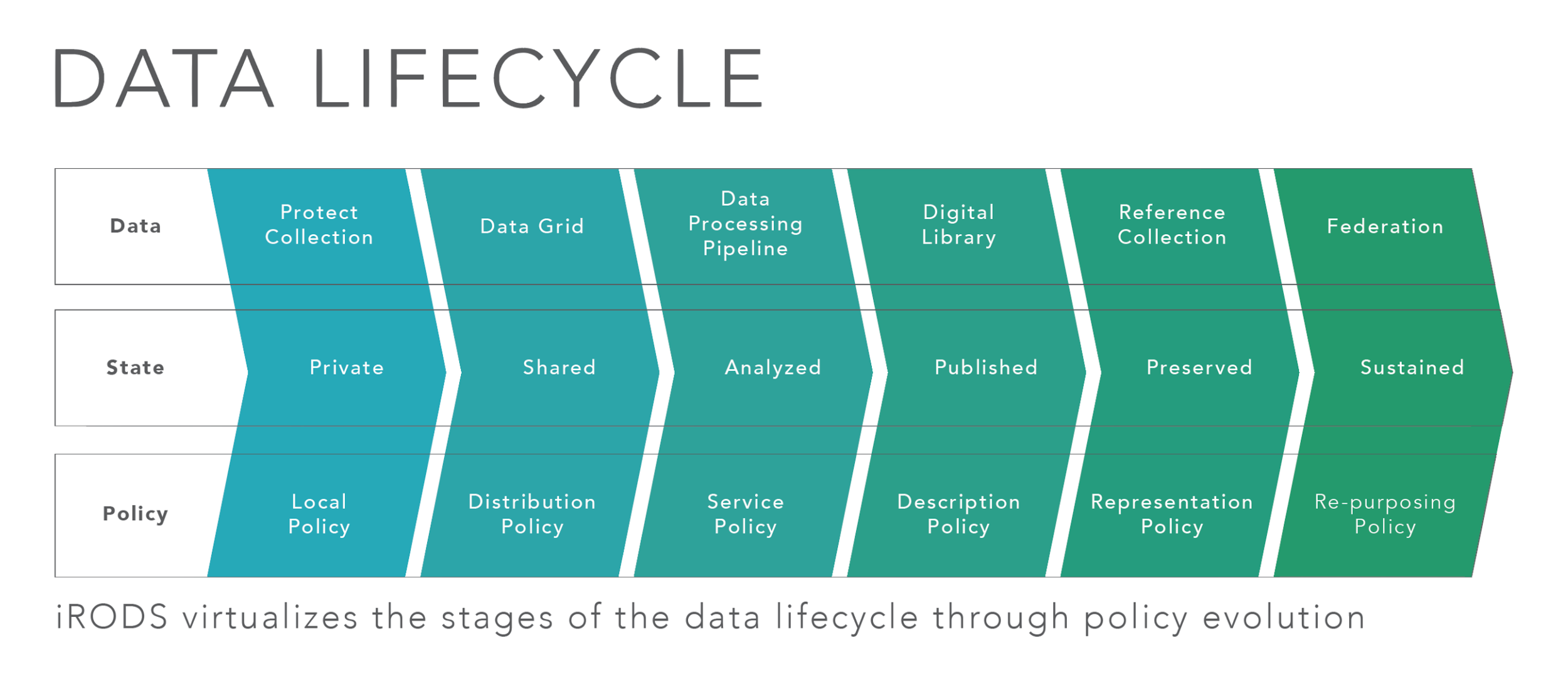

Data Virtualization
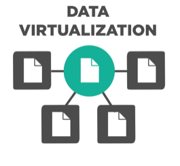
Combine various distributed storage technologies into a Unified Namespace
- Existing file systems
- Cloud storage
- On premises object storage
- Archival storage systems
iRODS provides a logical view into the complex physical representation of your data, distributed geographically, and at scale.


Data Discovery
Attach metadata to any first class entity within the iRODS Zone
- Data Objects
- Collections
- Users
- Storage Resources
- The Namespace
iRODS supports automated and user-provided metadata which makes your data and infrastructure more discoverable, operational, and valuable.
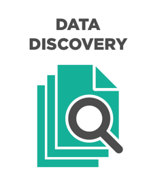


Workflow Automation
Policy Enforcement Points (PEPs) are triggered by every operation within the framework
- Authentication
- Storage Access
- Database Interaction
- Network Activity
- Extensible RPC API
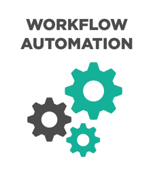
The iRODS rule engine framework provides the ability to capture real world policy as computer actionable rules which may allow, deny, or add context to operations within the system.


Dynamic Policy Enforcement
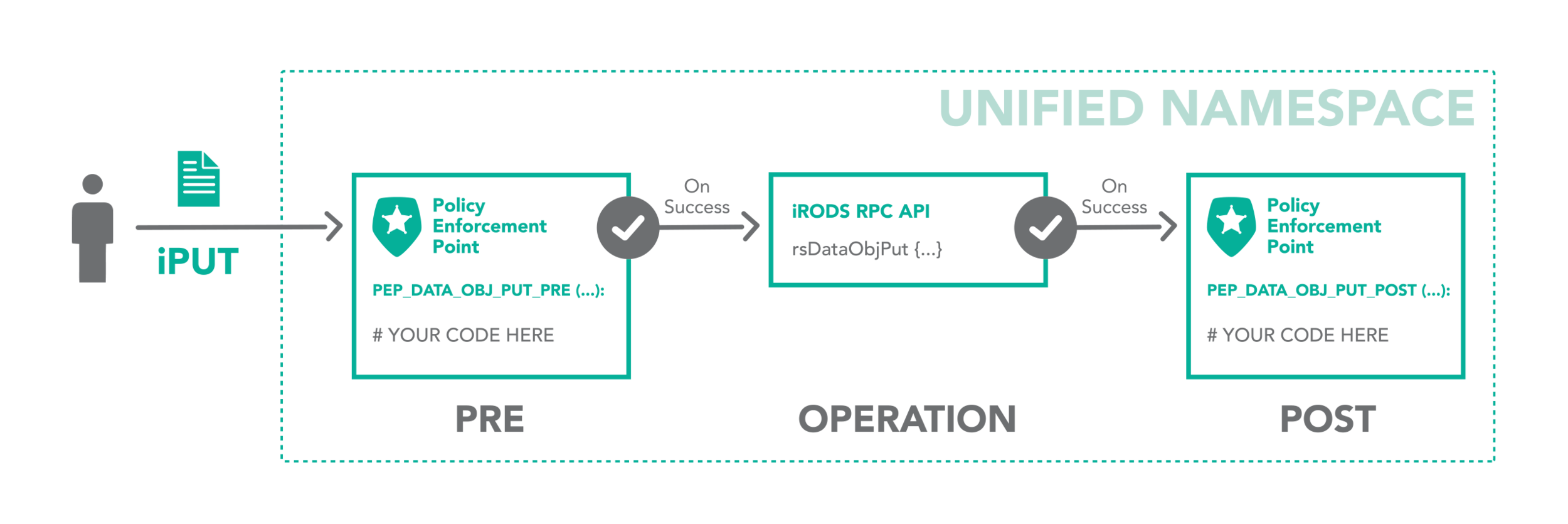
The iRODS rule may:
- restrict access
- log for audit and reporting
- provide additional context
- send a notification

Dynamic Policy Enforcement
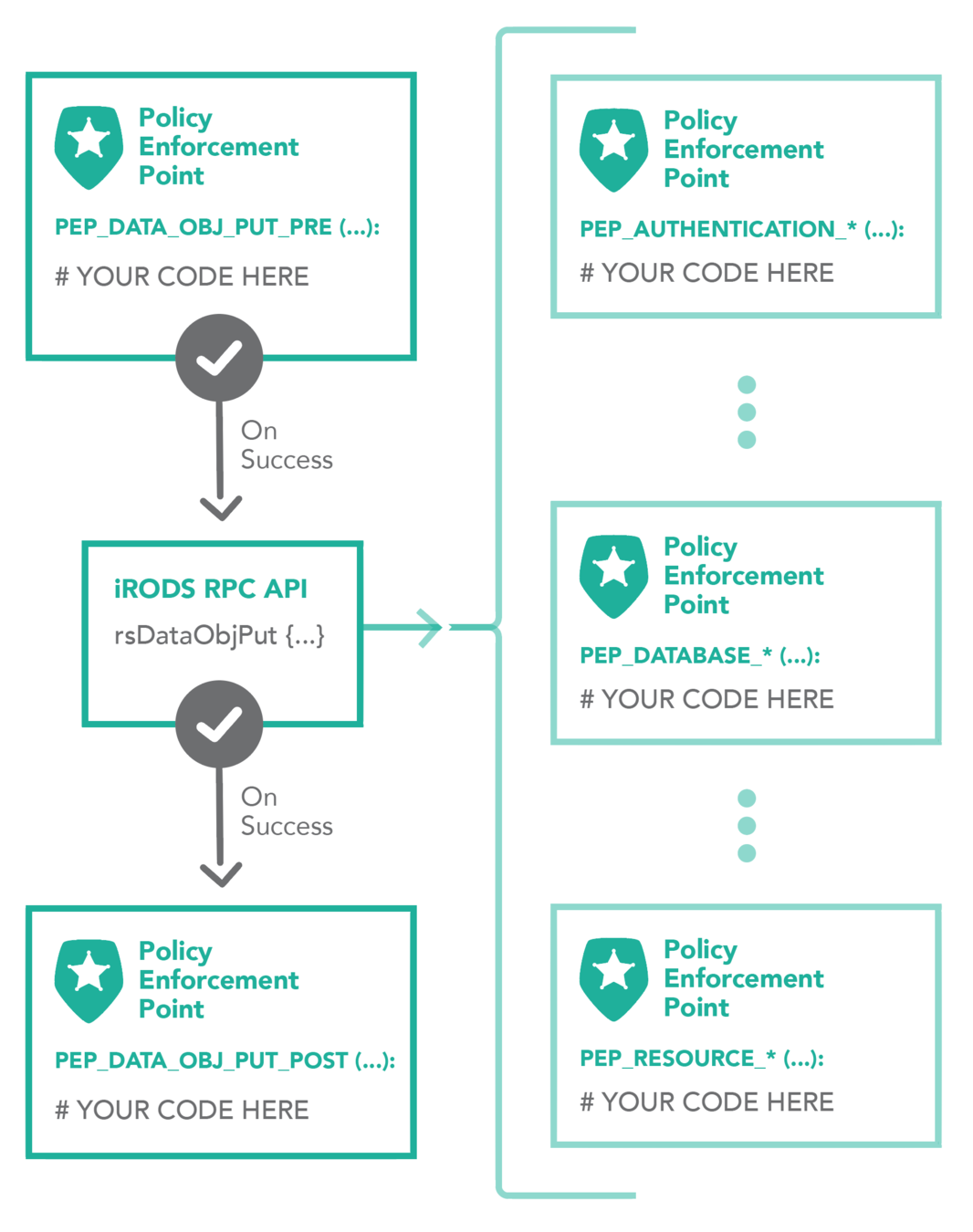
A single API call expands to many plugin operations all of which may invoke policy enforcement.
Plugin Interfaces:
- Authentication
- Database
- Storage
- Network
- Rule Engine
- Microservice
- RPC API

Secure Collaboration
iRODS allows for collaboration across administrative boundaries after deployment
- No need for common infrastructure
- No need for shared funding
- Affords temporary collaborations
iRODS provides the ability to federate namespaces across organizations without pre-coordinated funding or effort.
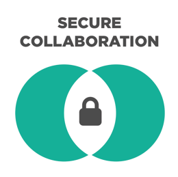


The Data Management Model




Protocol Plumbing - Presenting iRODS as other Protocols
- WebDAV
- FUSE
- HTTP
- NFS
- SFTP
- K8s CSI
- S3
Over the last few years, the ecosystem around the iRODS server has continued to expand.
Integration with other types of systems is a valuable way to increase accessibility without teaching existing tools about the iRODS protocol or introducing new tools to users.
With some plumbing, existing tools get the benefit of visibility into an iRODS deployment.
Future

- Towards Cloud-Native processes and bookkeeping
- Vertical Integrations in various domains
- Timeseries Data / Statistics
- Dashboarding
- Visibility
- Costs
Thank you

Terrell Russell
RENCI Booth #3923

iRODS Clients

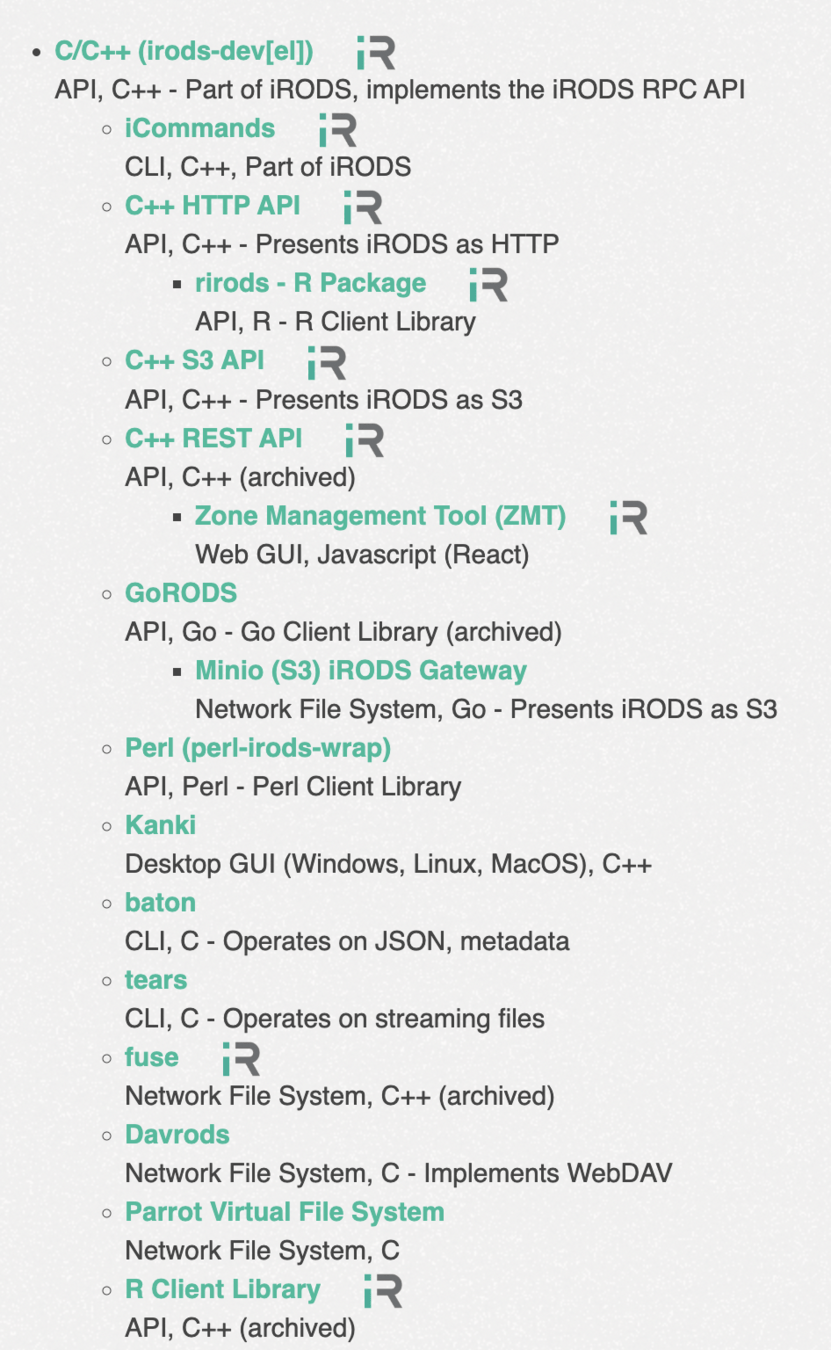
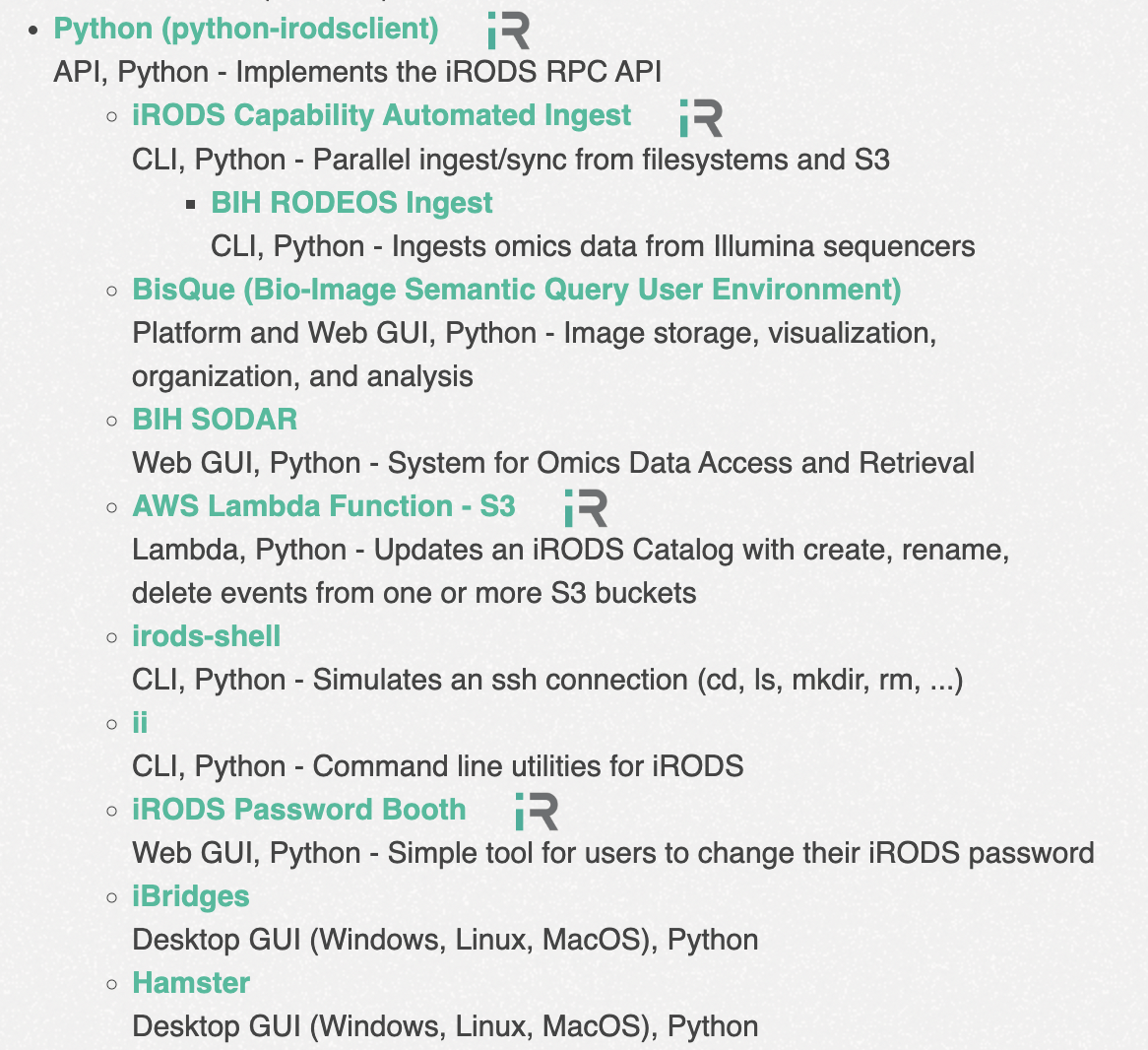
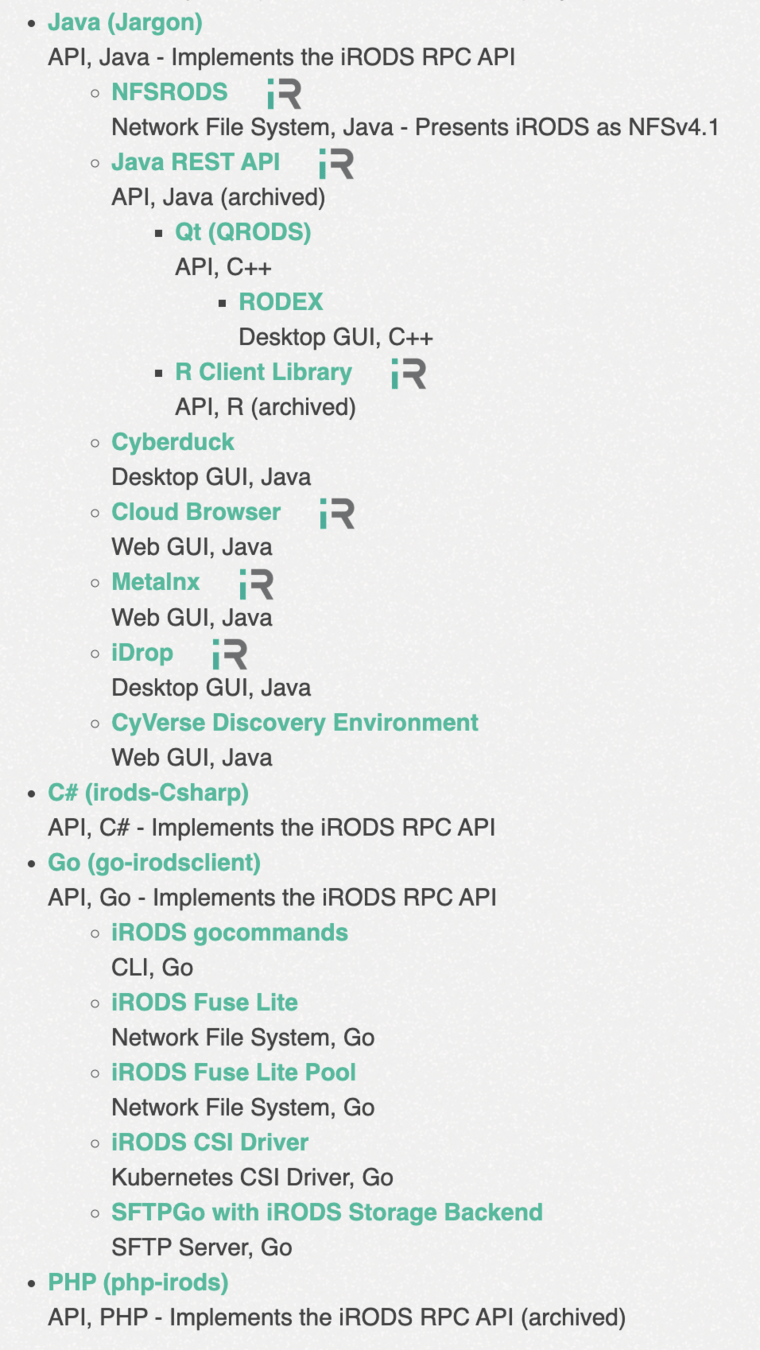
iRODS S3 Functionality

The iRODS S3 storage resource plugin allows iRODS to use any S3-compatible storage device or service to hold iRODS Data Objects, on-premises or in the cloud.
This plugin can work as a standalone "cacheless" resource or as an archive resource under the iRODS compound resource. Either configuration provides a POSIX interface to data held on an object storage device or service.
The following S3 services and appliances (in no particular order) have been tested:
- Amazon (AWS) S3
- Fujifilm Object Archive
- MinIO S3
- Ceph S3
- Spectra Logic Vail
- Spectra Logic BlackPearl
- Google Cloud Storage (GCS)
- Wasabi S3
- Oracle OCI
- Quantum ActiveScale
- Garage S3
Storage Tiering

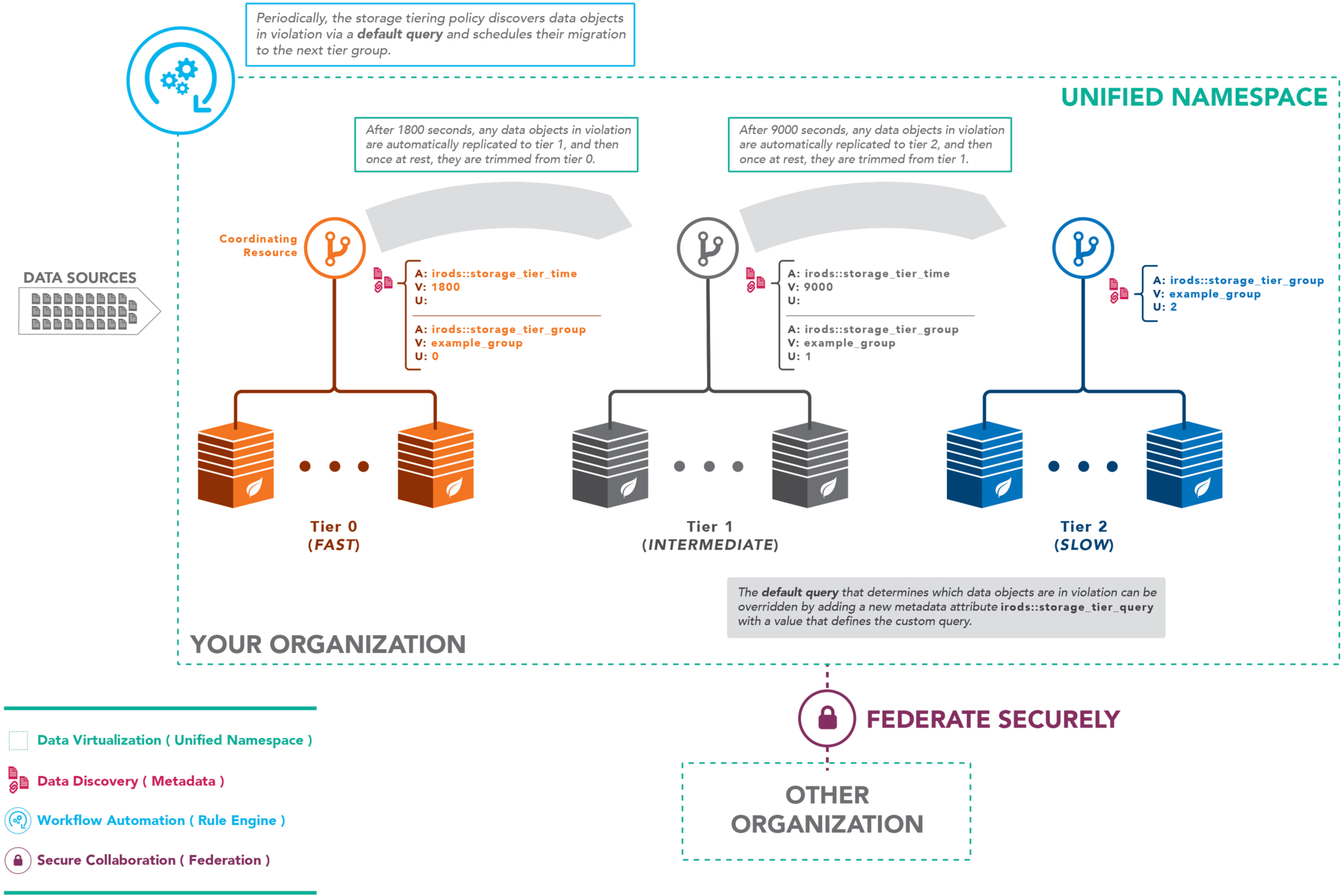

Automated Ingest - Landing Zone

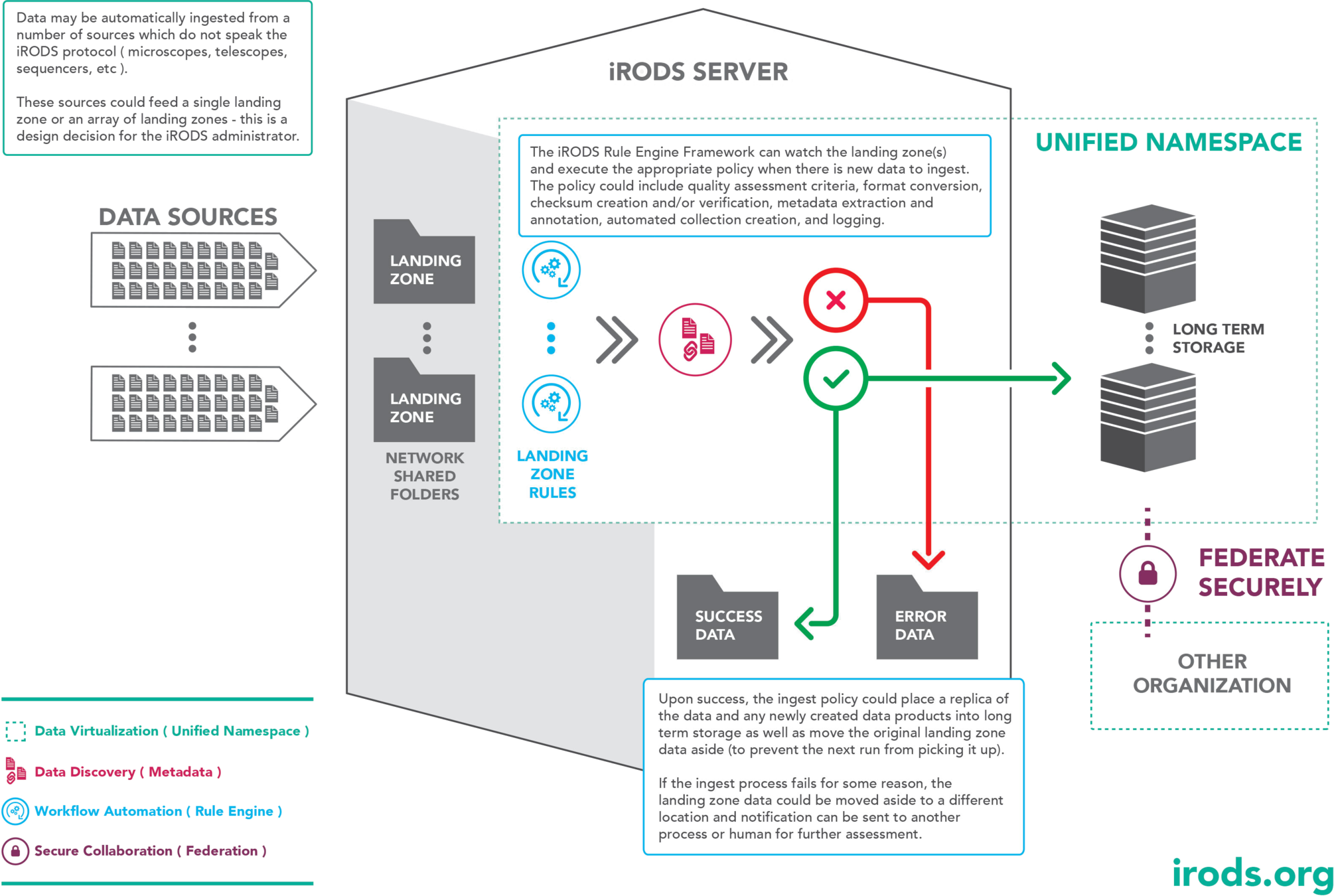

Automated Ingest - Filesystem Scanning

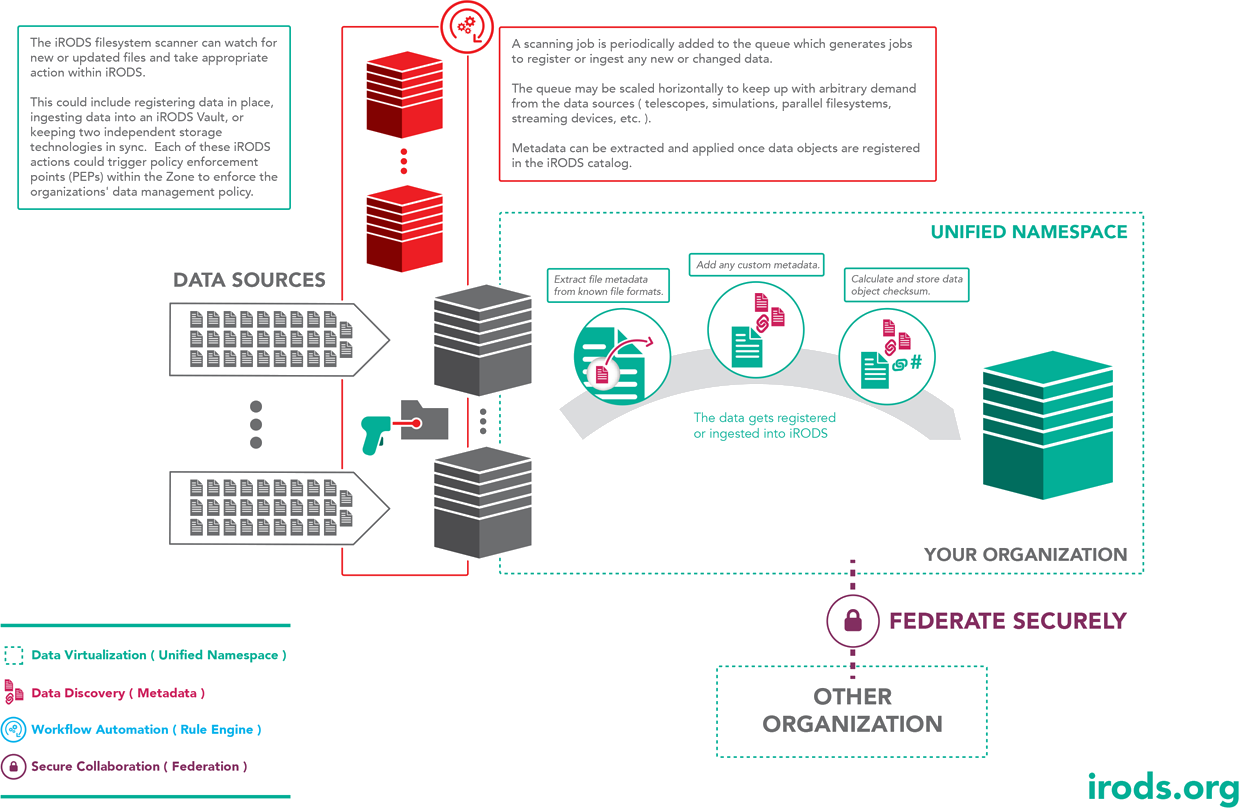

Core Competencies
Policy
Capabilities
Indexing
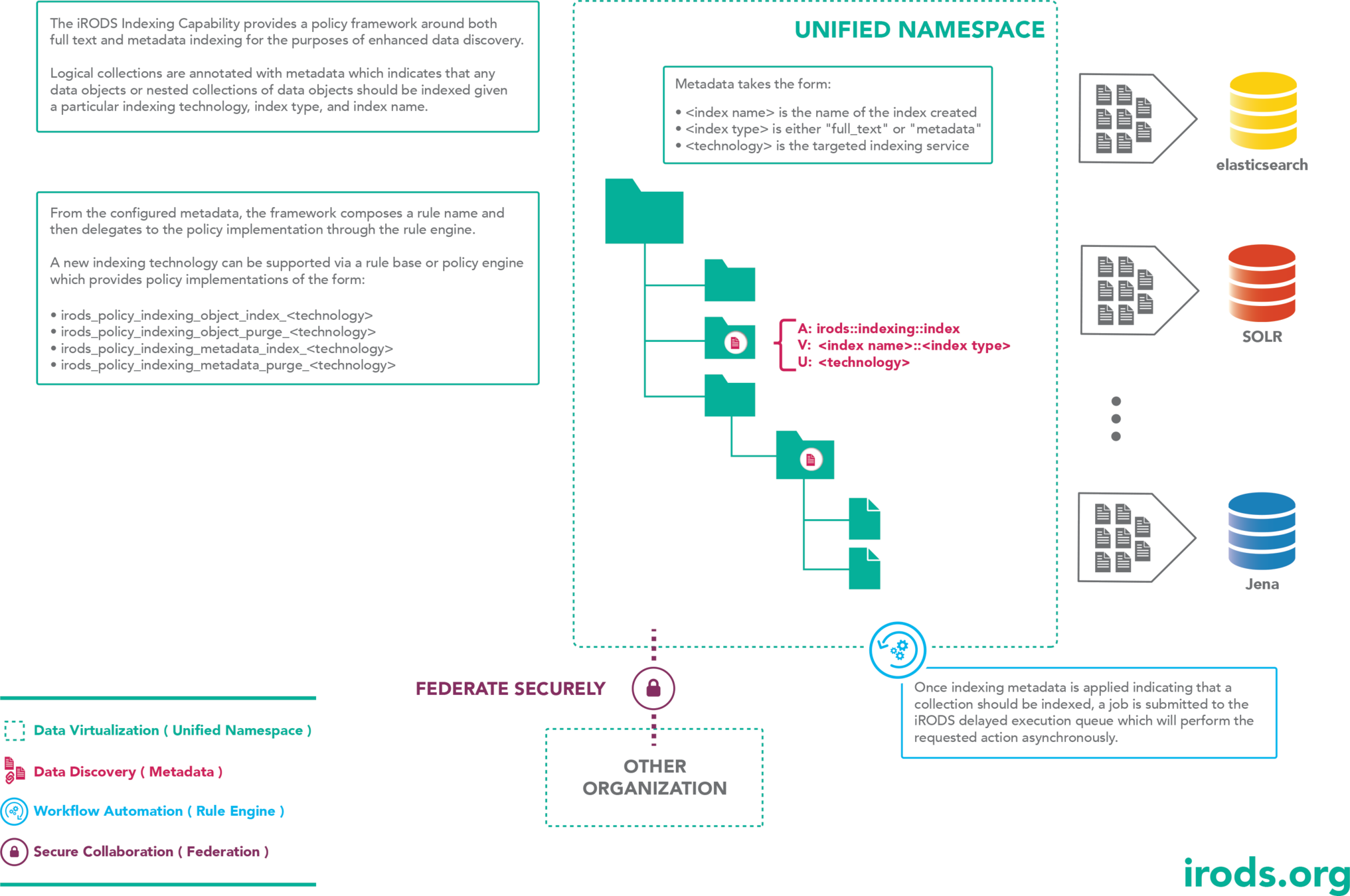

Core Competencies
Policy
Capabilities
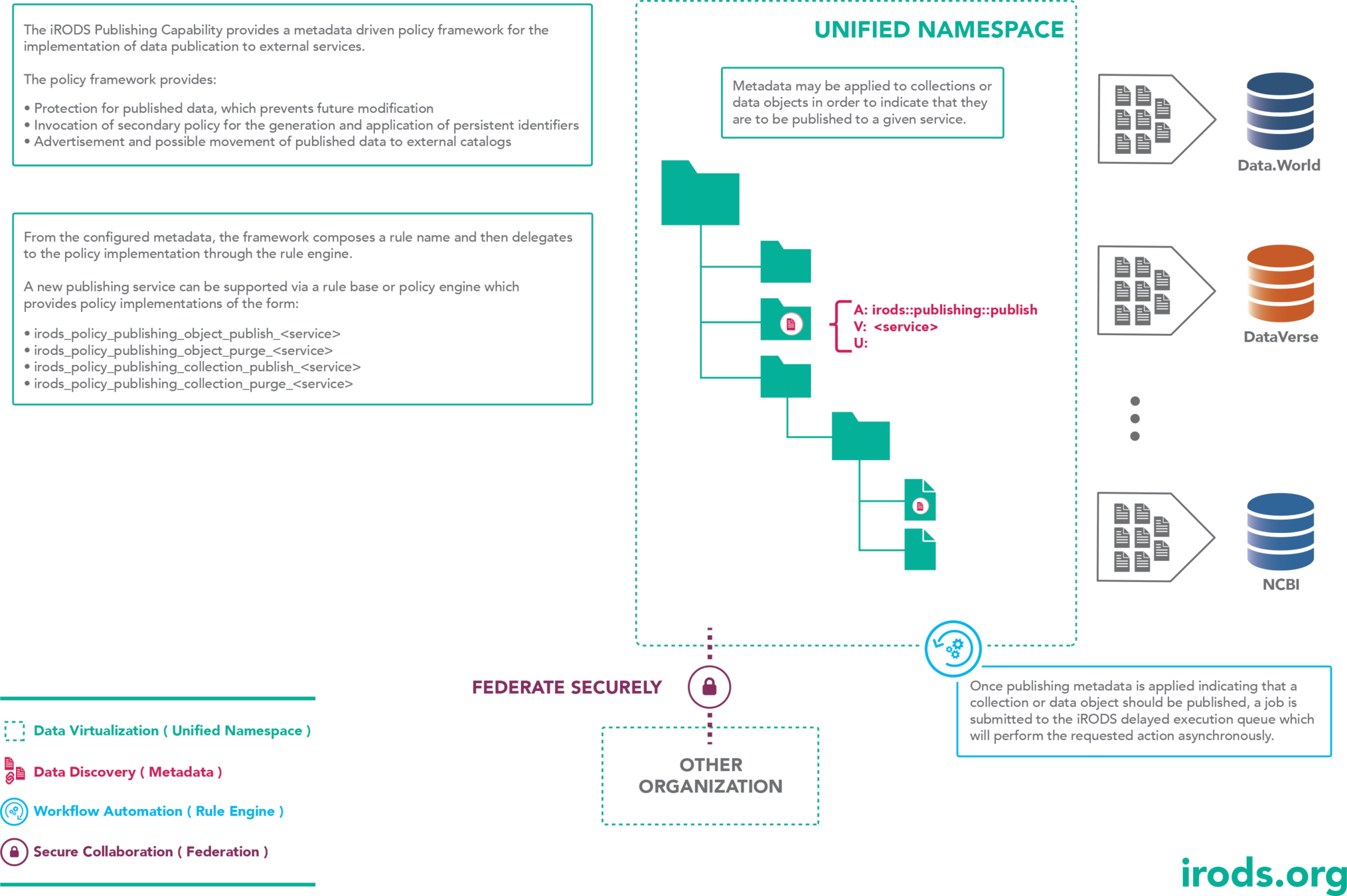
Publishing

Deployment Patterns

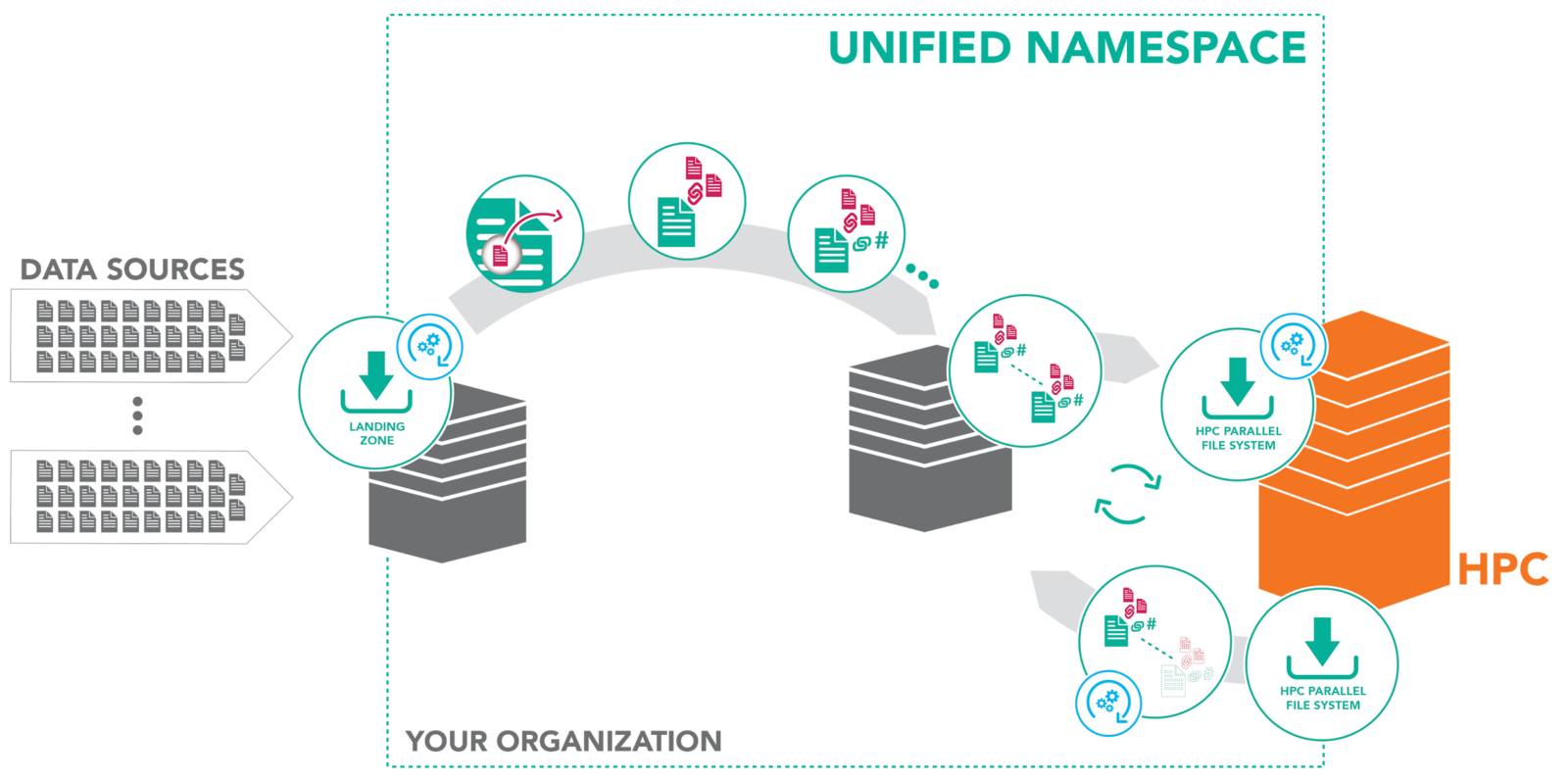
Data to Compute
Compute to Data
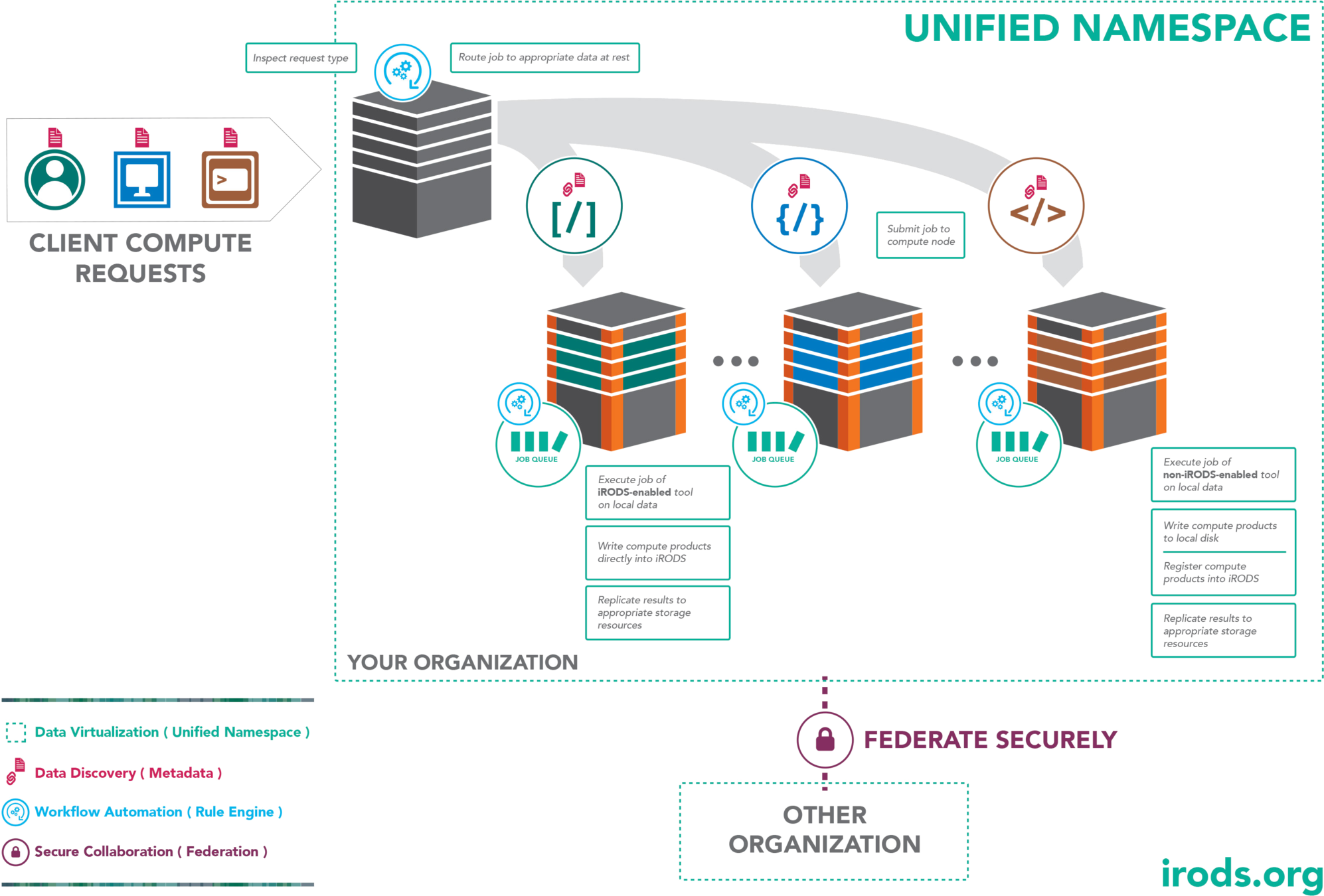
Data Transfer Nodes
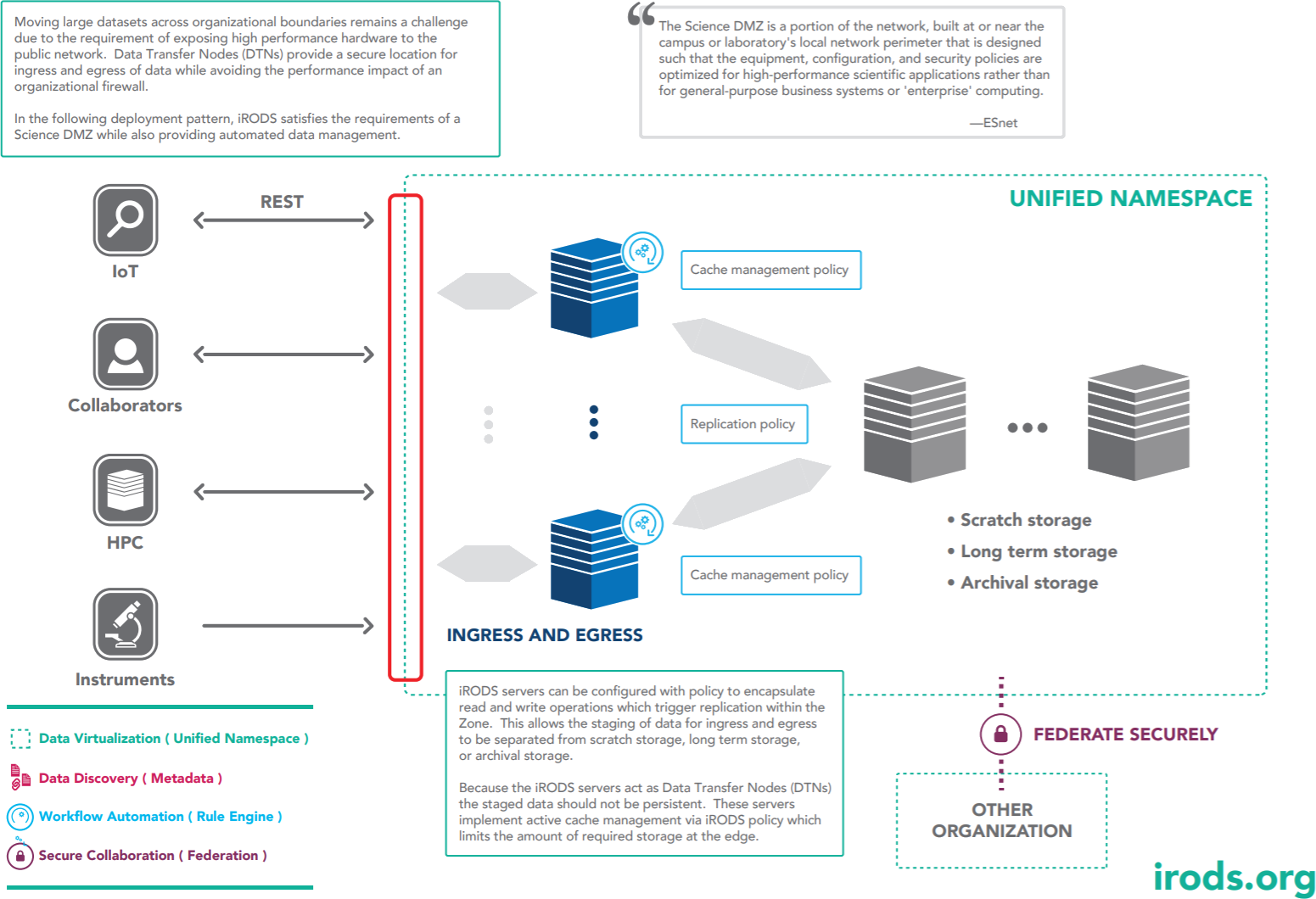
Filesystem Synchronization
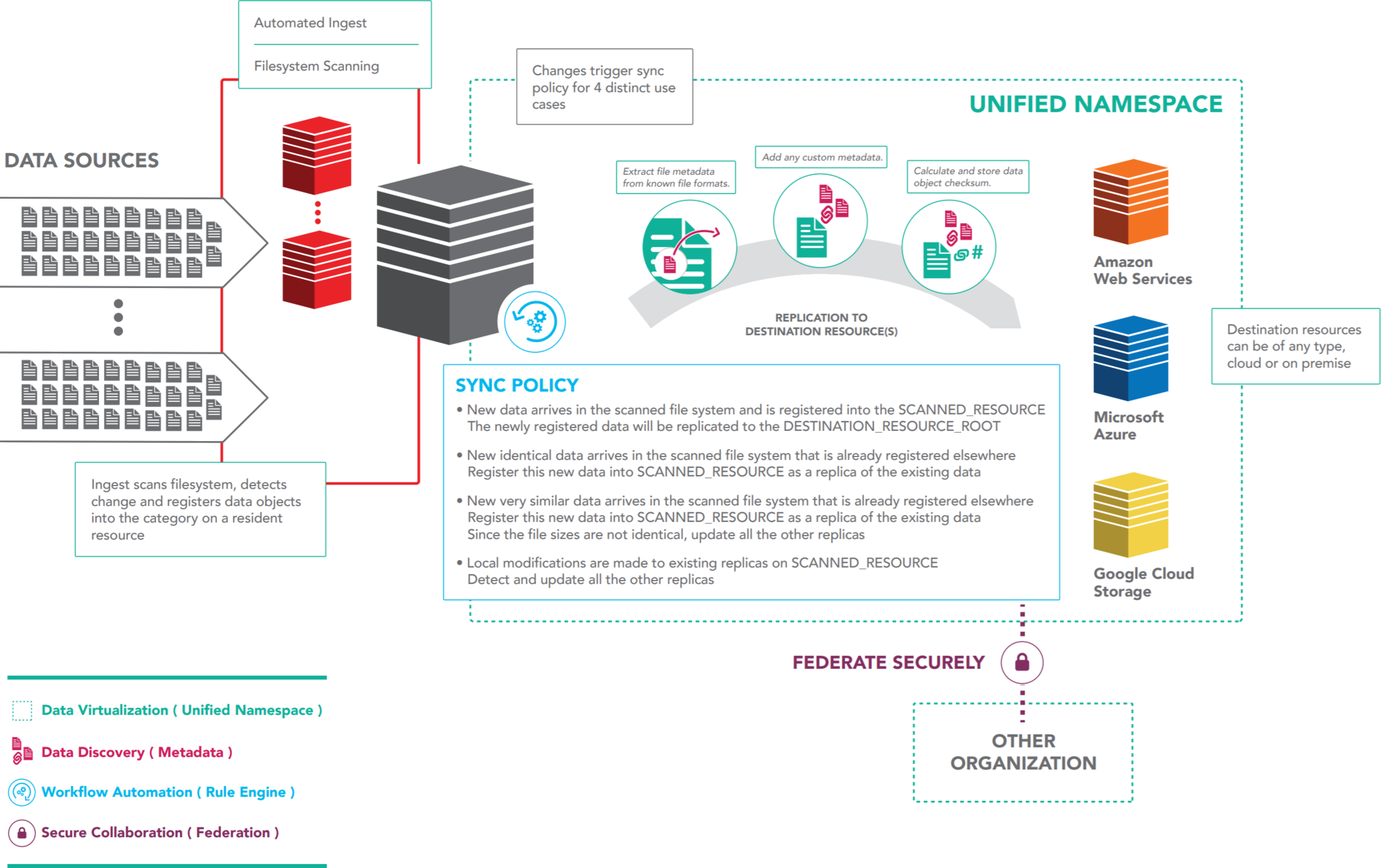

Filesystem Synchronization



Data to Compute



Compute to Data



Data Transfer Nodes



SC24 - Building an Approachable Cost-Effective Data Management Platform
By iRODS Consortium
SC24 - Building an Approachable Cost-Effective Data Management Platform
- 558

